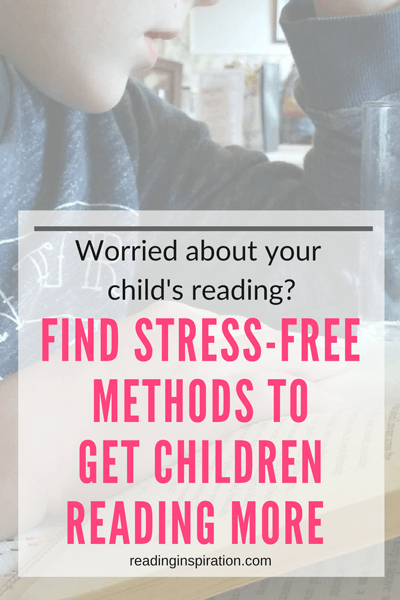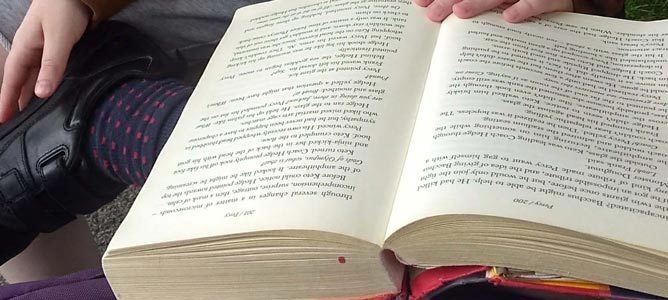Tips to get children reading with confidence
Does your child lack reading confidence? Do they find reading hard or do they lack interest or enjoyment in reading?
If you answer yes to any of these questions – don’t worry – you are not alone. Let me start by explaining one of the reasons I write on a blog about supporting children reading. At home we had always read a lot to our son, and he had always enjoyed books.
However, when it came to the stage of reading for himself it did not always come easily to him. Well-meaning teaching professionals directed us to a lot of resources. These included intensive phonics programmes and many structured activities around reading. I worried a lot and started to look for more ways to support him.
This post may contain compensated links. Read my disclaimer here
Positive steps to get children reading with confidence
Beyond some overwhelming advice, I found some great tips and information to get children reading more. Most importantly, I found tips for children to enjoy reading and feel happy and confident about it. I want to share some of the ideas which worked best for us.
These tips helped to reduce stress rather than adding to it. One of the most important lessons I learned is that this experience is not rare – and there are lots of positive steps that you can take.
So if you are feeling bewildered, try these tips to help get your children reading with confidence. Hopefully without reducing both you and them to tears. Because no child or parent needs that!
This is the first in a series of posts about building reading confidence and getting children reading more without stress.
In a nutshell…
In this series of posts on supporting children’s reading I will be expanding on how to:
- reduce pressure over reading
- resist the temptation to compare your child’s “reading level” with others
- surround your child with opportunities to access books (without spending lots of money!)
- make the most of your local library
- allow children to browse and choose their own reading material
- give yourself the chance to catch up on your own reading
- read to and with your children
- take books wherever you go, and
- take your child for regular eyesight tests
In this post I will be exploring in detail the first step – cutting out pressure about reading. Then I will move on to steps you can take to increase your child’s access to a wide range of reading materials.
Reduce pressure about reading
A lot of the time we get the message as parents that children are not reading enough, or perhaps not reading at the correct level. Perhaps the child appears to be reading well, but according to testing their comprehension of reading is considered poor.
It doesn’t take a genius to realise these messages can lead to increased feelings of pressure and be counterproductive. If your child is finding reading hard and is picking up on the fact that this is a concern; they are more likely to become frustrated and dread reading time. The pressure could put them right off picking up a book.
Kim Thomas warns in Primary School: A Parent’s Guide,
“The worst thing you can do is to turn reading into a chore – it risks turning your child off books altogether”
Wherever pressure is coming from; whether it is school, friends, family or just society at large, we can do our best to counter this at home. We have to be firm with ourselves as parents and put the pressure aside. We don’t need it and neither do our children. Tune out the unhelpful pressure on both yourself and your children and try to relax about the subject of your children’s reading.
Bin levelling up stress
Resist the temptation to compare your child’s reading levels to their classmates. Every child learns and develops at different rates from others. Some may develop reading confidence very quickly while others may take more time.
While you may be being encouraged to select particular levelled books for your child – and these can be very useful – do not feel restricted to these. Use a variety of books including the level you are advised your child is at.
It could be that the comfort of old familiar picture books will keep your child feeling relaxed and happy about reading. Even books with no or very little text are good for children to develop literacy skills and familiarity with storytelling.
You can also keep reading to your child. You can read books to them that might be too challenging for them to read independently. This can help feed their enthusiasm for a range of stories, and keep them enjoying books in general.
You can still show them the text as you read. But they do not necessarily have to read all the words themselves to enjoy and appreciate the book. They will also pick up on vocabulary and can start to recognise more words as you read. Point at words as you read them aloud to help with this.
In schools learning is often structured. Activities might aim to reach “Learning Objectives”. The work done by teachers in schools will be central in teaching your children to read, is much appreciated and one of the many reasons why we celebrate teachers all around the world!
However, reading with your children at home also plays a really important role in creating reading confidence. And when reading at home with your child, you don’t have to think about meeting learning objectives! Make reading time all about enjoyment and reading just for the sake of reading. Don’t worry, just by reading together, learning will happen anyway.
So relax …
For myself, I came to the conclusion that the best possible thing to do was to stop worrying about my son’s reading. Instead I needed to let him enjoy reading and gently guide him through reading hurdles. I also needed to let him take the lead in his reading journey and take him for an eye test – but more on that later…
and surround children with books
If you are finding that your child doesn’t seem to be showing much interest in books, make sure there are plenty of books around them and that they are aware of them. This may sound obvious but sometimes we can’t see the wood for the trees!
Perhaps you already have lots of books at home which have been borrowed from the library or bought for your children. But are they just sitting on the shelf? Personally we have always been lucky to have a stock of books gifted by grandparents.
As these tend to pile up around birthdays and Christmas they do not all get read at once. These are the kind of books that your children can always come back to on a rainy day.
Make sure to remind your children about the books that they already have on the shelf from time to time. Move the books around, find the ones that have been buried at the back of the shelf.
Sometimes we have found unread books that we had thought our son was not interested in. It was only when it was suggested these books be taken to the charity shop that they were picked up and read.
Borrow and lend – pass the books
Another way to keep books in mind and in circulation is to suggest lending books to friends and borrowing theirs. See if you can get a conversation going between your children’s friends during play dates. Ask “What are you reading? Did you enjoy it?”
This way your child can pick up on book suggestions from their friends. Perhaps they can start their own little borrowing and lending reading library or book club. This can work particularly well for older children.
Whether it’s the library, a bookshop or a second-hand bookshop, there are lots of places where opportunities to find books will come up. Pop into those places as often as you can and let children have a good look around and see what books attract their interests.
Here’s a guide to children’s bookshops in London which provide unique atmospheres to encourage children’s love of books.
Further reading (no pun intended)
I would really recommend Michael Rosen’s Good Ideas: How to Be Your Child’s (and Your Own) Best Teacher. It is a great read for parents, with lots of tips for bringing up confident and well-read kids.
Personally I gained a lot of insight from this book and I will be referring to some specific tips from it in some of the following posts in this series. You can order a copy here. Or you know, you can probably get it from the library. In the meantime …
Over to you – do you have tips to get children reading more?
Do you have a favourite bookshop in your local area? Do you feel pressured about your child’s reading? Or do you have any reading tips to share? Let us know in the comments below.
In future posts in this series I will be sharing tips about encouraging children to browse and make reading choices, making the most of the library and encouraging happy reading habits. See you soon!
Read the second post in this series here.
– Find lots more inspiring reading ideas here at readinginspiration.com –
If you comment on this website your email address will not be published. Additionally, your comment data is never used for marketing purposes. Required fields are marked *
Your privacy is important to us: check out our Privacy Policy here to find out about how data protection is undertaken on this website.
Disclaimer: As an Amazon Associate I earn from qualifying purchases.


